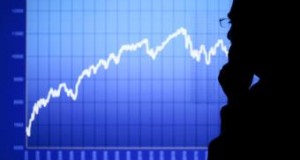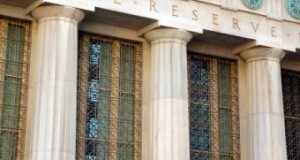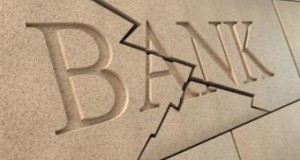A fresh round of concerns that Greece may leave the euro zone sent U.S. stock markets into a dizzying tumble Monday. After some lift in recent weeks, the Dow Jones Industrial Average fell 125.25 points to close by end of day at 12,695, along with shares for the nation├â┬ó├óÔÇÜ┬¼├óÔÇ×┬ós four largest lenders. The deal reportedly involves a Syriza, a leftwing bloc opposed to further austerity measures that may parlay slashes to Greek social services for $170 billion in bailout funds under a package jointly agreed-to by the European Union and International Monetary Fund.
Read More »Stocks Swell for Big Four as Construction Spending Rises
Shares swelled for the nation├â┬ó├óÔÇÜ┬¼├óÔÇ×┬ós four largest lenders Tuesday, with analysts crediting a rise in construction spending over March for a climb by the stock market to levels not seen in four years. The Dow Jones Industrial Average cleared an important psychological hurdle by rising 65 points to 13,279, the highest in four years. Media outlets and analysts attributed the boon to a leap ahead in confidence for the Chinese and U.S. economies, with a slight rise in construction spending over March responsible for the latter. Construction spending arrived at $171.2 billion.
Read More »Big Three Banks See Shares, Stock Rise With Dow Jones
The Dow Jones Industrial Average finished by end of day Friday at a clip just below 13,000 points, lifting stocks and shares for all but one of the four major financial institutions. The jump reportedly marks the highest for the Dow Jones since 2008, just before the worst of the financial crisis, as investors got bullish on another round of bailout votes for debt-saddled Greece. The index closed on a .35-percent hike Friday, up 45.79 points, giving Wells Fargo a 2.37-percent boost to wrap up stocks at $31.09 per share.
Read More »Housing Plays Small Part as Economy Adds 243K Jobs
A still-brittle economic recovery picked up steam in January as the private sector added 243,000 jobs, driving unemployment figures to lows not seen in three years. The Labor Department said that the national unemployment rate fell to 8.3 percent, also signaling a fifth straight month for declines in the number of jobless Americans. Construction added 21,000 jobs from December, with gains for nonresidential construction and specialty trade contractors. Financial services lost some 5,000 jobs from last month by comparison.
Read More »Bank Shares Slide on S&P’s Eurozone Downgrades
Stocks and shares for the nation├â┬ó├óÔÇÜ┬¼├óÔÇ×┬ós four largest banks slid back Friday on news that ratings agency Standard & Poor's slashed credit ratings for several debt-saddled euro zone countries, including France, Italy, and Spain. A 0.4-percent dip led the Dow Jones Industrial Average to end the day at 12,422 points, a 48.96 loss from the day before. The S&P 500 went south in a 0.5-percent tizzy, losing 6.41 points to close at 1,298. S&P ignited an investor selloff in the markets earlier Friday by announcing credit changes for 16 European countries. S&P slashed U.S. sovereign credit last fall.
Read More »Unemployment Hits 8.6% as November Payrolls Add 120K
In good economic news, payrolls picked up 120,000 jobs in Nov., helping shrink employment to 8.6 percent ├â┬ó├óÔÇÜ┬¼├óÔé¼┼ô the lowest in more than two years, according to The Labor Department.
Read More »Stocks Soar on Fed’s Move to Save Global Financial System
A bold move to shore up global financial liquidity by the Federal Reserve and central banks from five other countries created a surge in confidence for investors Wednesday, inspiring a pickup in stocks and shares for the nation├â┬ó├óÔÇÜ┬¼├óÔÇ×┬ós four biggest U.S. lenders. The Dow Jones Industrial Average jumped nearly 500 points to crest at 12,045.68 by end of day in response, with shares climbing for Bank of America, Citigroup, JPMorgan Chase, and Wells Fargo. Central banks agreed to lower prices for U.S. dollar liquidity swaps by 50 basis points.
Read More »Greek Turmoil, G-20 Decisions Target U.S. Lenders
Political trouble in Greece sent stocks and shares for major mortgage lenders tumbling Friday, even as the world's 20 wealthiest nations placed eight U.S. banks on a list that may require systemically risky institutions to shore up their capital reserves. The decision revealed the degree to which events overseas continue to shake U.S. mortgage lenders in an increasingly interdependent global economy, where international players fear the potential for a double-dip recession and ripple effects from systemically risky institutions.
Read More »
 theMReport.com Your trusted source for mortgage banking news
theMReport.com Your trusted source for mortgage banking news







